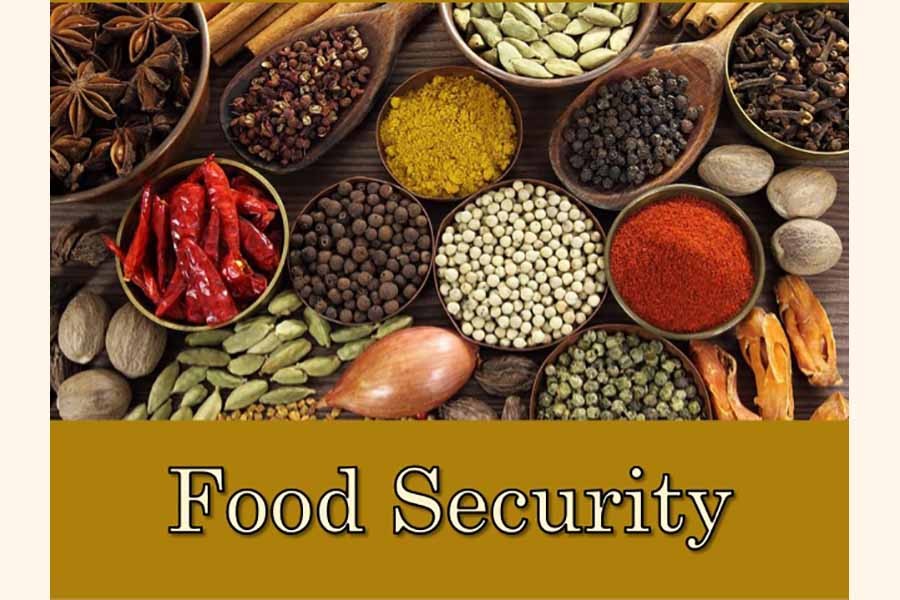
Published :
Updated :

Food security has never been fool-proof in any country across the world. This is because food production has always been climate-dependent and there are natural and man-made disasters that take a dent into food reserve. It is against this background that Finance Minister AMA Muhith deserves gratitude of people with fixed income bracket for draining out their woes caused by rice price spiral. This is for the first time a sitting finance minister spoke of the plight of people in maintaining their livelihood in these days of extremely hot kitchen markets. He told reporters at his Secretariat chamber last week citing a study that people 'face some difficulties when the price of rice crosses Tk 50 a kg and might have run out of their savings to cope with the high price.'
The Minister did not stop there. He said the government also wanted the price to increase to some extent so that growers can get fair price. He found it good from that point. But when it went beyond Tk 50 a kg, some people faced problems and might have run out of their savings, he said. Muhith's comments came in response to a think-tank's new research finding that says 520,000 people have fallen below poverty line due to sharp increase in prices of the staple this year.
The reasons for rice supply shortages are already well-known. Breaches in embankments in haors due to corruption of the Water Development Board engineers and contractors washed away an estimated one million tonnes of rice from paddy-fields. Then there had been utter negligence of the Food Ministry officials in forecasting food output trends from its mechanism. It was because of these that Dhaka-based South Asian Network on Economic Modelling (SANEM) found a 35 per cent increase in prices of rice. And the results show that there is likely to be a rise in headcount poverty rate by 0.32 percentage points due to the rice price hike this year. This means that 520,000 people have become poorer because of increased rice price, according to SANEM.
But Muhith at the same time said the report should not be trusted right at this time. "One should wait at least for a year to find out whether poverty rate has gone up or down," he said, adding that his position is that he will not accept the report until a year passes.
But the harsh reality is that rice prices hit a record high in mid-August. On September 16, retail prices of coarse grains, consumed mainly by the poor and low income groups, shot up to Tk 50-54 a kg in Dhaka city, according to the state-run Trading Corporation of Bangladesh (TCB). The prices, however, later came down below Tk 50 a kg thanks to huge imports and availability of subsidised rice through open market sales.
What is really funny was that his critics in the opposition camp took Muhith's frank and honest appraisal with a grain of salt. But they must know that the finance minister has to make fair assessment in order to help the government devise ways and means to stave off temporary food shortages to be faced in 2018 when the country's domestic politics is likely to be volatile due to hectic preparations for the 11th parliamentary poll.
"Food insecurity and its resulting poverty incidence might be a point of serious debate in the poll campaign", said a leading researcher requesting anonymity although it's a fact that it is the Awami League government which had promoted latest technologies to attain near food autarky in the country.
Just one day after Muhith's comments, the government formed 14 teams which will now monitor price movements and prevent abnormal situation in markets. The government will closely monitor the price situation with a view to keeping the prices of essentials within the buying capacity of the common people, a high official of the ministry of commerce said. The reconstituted watchdog panels will inspect the wholesale and retail prices of essentials in Dhaka city. They will also collect price data and gather information on stock and supply of essentials during their drives.
The hike in food prices after the food crisis in 2007-08 has had a negative impact on real wages and access to food. Sharp increase in food grain prices significantly lowers the real income of poor households which spend over half of their income on staple food. At the same time, the volatility in producer prices increases risks and uncertainty, and discourages the subsistence farmer to invest in agriculture. The volatility of food prices remains an issue for achieving seasonal and temporal stability in food security.
Bangladesh is often at the mercy of natural calamities such as floods, droughts and cyclones. It also witnesses frequent land erosion causing thousands of people to lose their lands every year. Despite gains achieved by Bangladesh in augmenting availability of staple food, a data-based safety net programme must be in place to insulate the poverty-stricken population from chronic as well as temporary food insecurity that results from external shocks. A number of food safety net programmes are in operation in Bangladesh, each with its own specific objectives and target population. These include Test Relief, Vulnerable Group Feeding, Vulnerable Group Development, Food for Work, Employment Guarantee Scheme, etc. A number of social protection programmes such as vulnerable group feeding, allowance for destitute women, and old age pensions have also been introduced to support food security of the extremely needy people. These have to be reformed quickly so that there are no more lapses.
arjayster@gmail.com


 For all latest news, follow The Financial Express Google News channel.
For all latest news, follow The Financial Express Google News channel.